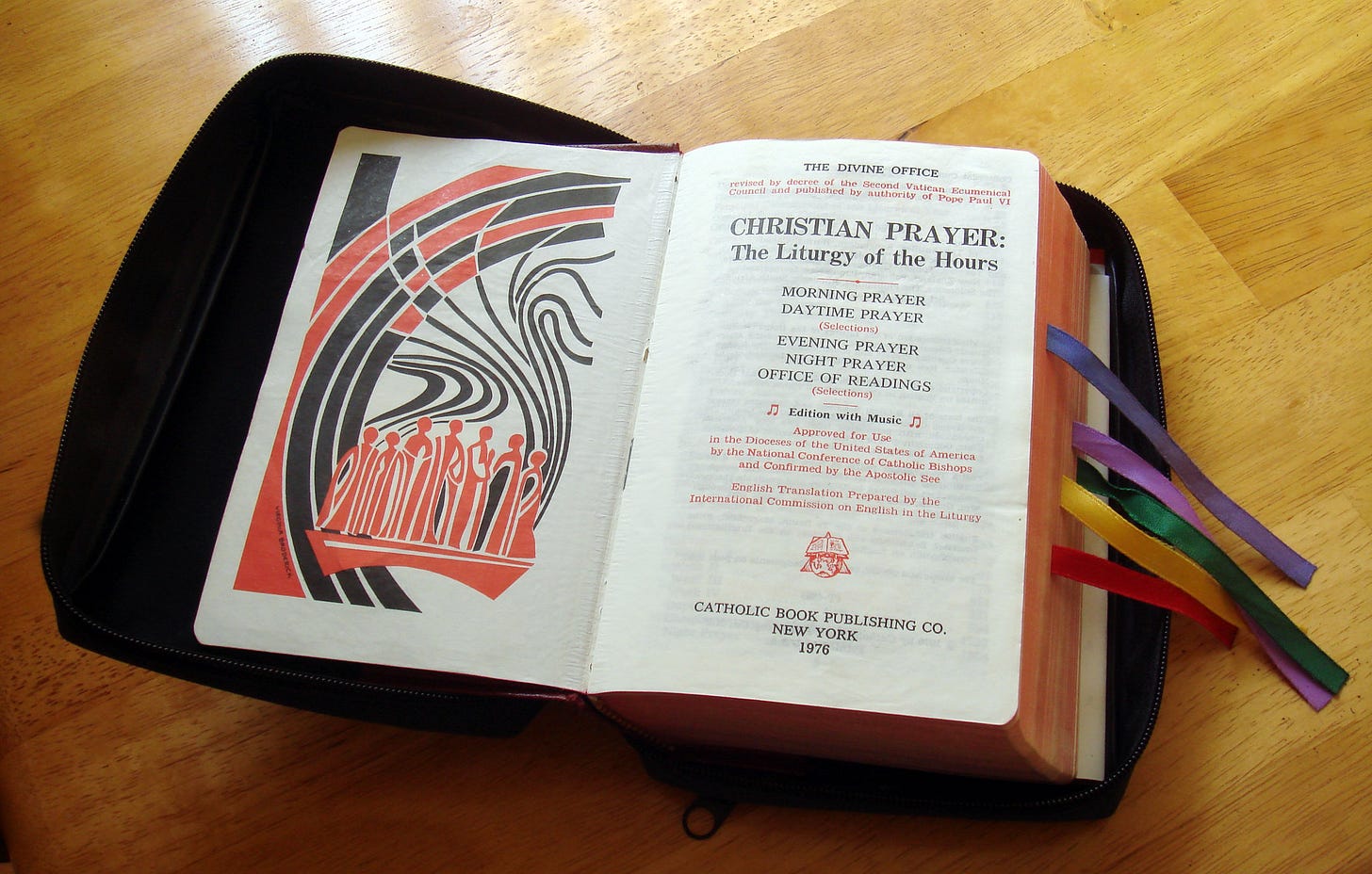Lately, I have been turning to the Liturgy of the Hours as an important part of my prayer life. For my new job, I have a long commute early in the morning, and so I started praying along to the Liturgy of the Hours as a way to begin my day in conversation with God. In particular, I’ve been using the DivineOffice app, produced by DivineOffice.org, which includes a well-done audio recording of each day’s prayers with which you can pray along. Both the app and the web site also include the texts of the readings and responses.
The Liturgy of the Hours, also known as the Divine Office, is the recitation of psalms, other scriptural readings, and various prayers at set times throughout the day (the “canonical hours”). The revision of the Liturgy of the Hours in light of the Second Vatican Council, which was produced in 1971, includes five canonical hours: morning prayer, daytime prayer (which can be midmorning, midday, or midafternoon), evening prayer, night prayer, and the Office of Readings, which can be recited any time of day.
The practice of the Liturgy of the Hours has its roots in the singing of psalms at set hours by Jews in the Exilic and Second Temple periods, a practice that continued among early Christians, both as public worship and private prayer. Gradually over the centuries, the public practice of the Hours grew more elaborate and came to be primarily practiced by monastic communities and cathedral chapters (the clergy who staffed a cathedral, assisting the bishop). It became obligatory for clergy to privately pray the Hours as early as the fifth century. Although for many centuries lay people had participated in the recitation of morning and evening prayers, this practice gradually diminished; it was not until the twentieth century that churches were urged to hold morning and evening prayer services including the laity and that the laity were again encouraged to incorporate the Liturgy of the Hours into their private prayer.
The Second Vatican Council’s Sacrosanctum Concilium describes the Liturgy of the Hours in frankly cosmic terms. It explains that Christ sings a “hymn which is sung throughout all ages in the halls of heaven,” and through his divine mission, invited the entire human community to join in this singing on earth (#83). It goes on to say that this hymn of praise takes place primarily through the liturgies of the sacraments, but also through the Liturgy of the Hours (#83). Although the Liturgy of the Hours links us to the cosmic liturgy, it also makes the prosaic sacred. The purpose of the Liturgy of the Hours is that “the whole course of the day and night is made holy by the praises of God” (#84), to “sanctify the day” (#88).

Keep reading with a 7-day free trial
Subscribe to Window Light to keep reading this post and get 7 days of free access to the full post archives.




